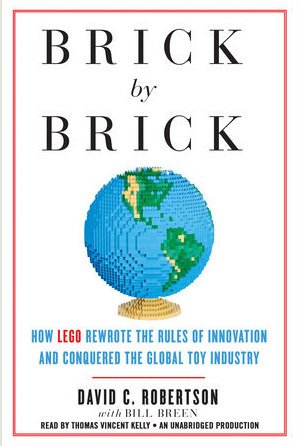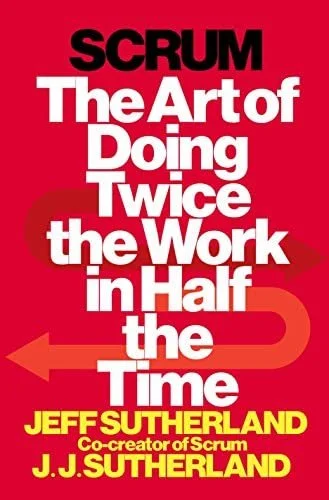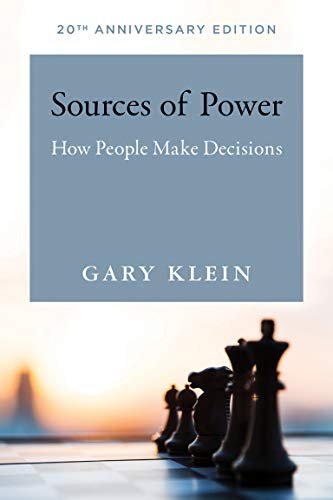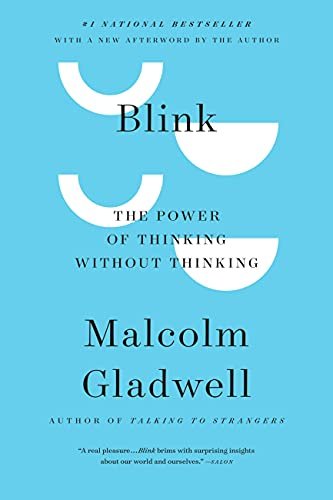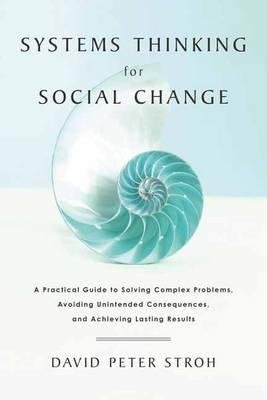2022 A Year in Books
Brick by Brick
〰️
Rest is Resistance
〰️
Flow
〰️
The Four Hour Work Week
〰️
SCRUM: The Art of Doing Twice the Work in Half the Time
〰️
Love as a Business Strategy
〰️
Jugaad Innovation
〰️
Why We're Polarized
〰️
Immunity to Change
〰️
The Way of the HR Warrior
〰️
Atomic Habits
〰️
The StoryTelling Animal
〰️
Give and Take
〰️
Deep Work
〰️
The Airbnb Story
〰️
Sources of Power
〰️
Blink
〰️
Tiny Habits
〰️
Thrive
〰️
Systems Thinking for Social Change
〰️
The No Asshole Rule
〰️
Rest
〰️
Wired to Create
〰️
The Human Element
〰️
Brick by Brick 〰️ Rest is Resistance 〰️ Flow 〰️ The Four Hour Work Week 〰️ SCRUM: The Art of Doing Twice the Work in Half the Time 〰️ Love as a Business Strategy 〰️ Jugaad Innovation 〰️ Why We're Polarized 〰️ Immunity to Change 〰️ The Way of the HR Warrior 〰️ Atomic Habits 〰️ The StoryTelling Animal 〰️ Give and Take 〰️ Deep Work 〰️ The Airbnb Story 〰️ Sources of Power 〰️ Blink 〰️ Tiny Habits 〰️ Thrive 〰️ Systems Thinking for Social Change 〰️ The No Asshole Rule 〰️ Rest 〰️ Wired to Create 〰️ The Human Element 〰️
On a flight, in a doctor’s waiting room, or even before bed, I am one of those who is never without a book. Books have long been one of my favorite methods of learning and I’m excited to share what 2022 looked like for me in reading, learning, exploring new ideas, and questioning why things are the way they are.
May the following transport you to new ideas, better worlds, and happier jobs:
Brick by Brick: I was so hooked on Brick by Brick – I finished it in two days. I cannot recommend this book enough for its fast-paced, insider story-telling style. However, I will add that although the authors make great points about how unfocused innovation put LEGO even deeper into financial difficulties, innovation efforts weren’t the reason LEGO was in financial trouble. You can’t out-innovate bad management and operations – that's why those pieces were fixed first. ☺️
Rest is Resistance: I spent a weekend immersed in Tricia Hersey's Rest is Resistance, an incredible work of poetic prose which draws from black liberation theology to proclaim rest as a form of resistance to capitalism and white supremacy. Here are two of my favorite passages:
"The Rest is Resistance Framework also does not believe in the toxic idea that we are resting to recharge and rejuvenate so we can be prepared to give more output to capitalism....we are not resting to be productive. We are resting simply because it is our divine right to do so."
"Grind culture harms the community by making it normal to work and go to bed exhausted and get up and work more. The urgent wheel of capitalism spins on unconcerned with those existing in it. Capitalism commodifies whatever it can..."
Flow: This was my favorite quote from Flow: The Psychology of Optimal Experience, "The more a job inherently resembles a game–with variety, appropriate and flexible challenges, clear goals, and immediate feedback–the more enjoyable it will be regardless of the worker's level of development." And here’s a great synopsis from The Los Angeles Times Book review, ““Csikszentmihalyi arrives at an insight that many of us can intuitively grasp, despite our insistent (and culturally supported) denial of this truth. That is, it is not what happens to us that determines our happiness, but the manner in which we make sense of that reality. . . . The manner in which Csikszentmihalyi integrates research on consciousness, personal psychology and spirituality is illuminating.”
The Four Hour Work Week: This book is definitely worth the read, both because Tim Ferriss promotes a lifestyle of experience, mini-retirements, and travel that I've always celebrated, but also because he provides incredibly tangible resources and ideas for optimizing working hours. My only desire would have been to hear more about (1) how his lifestyle design fits into running a consultancy or service offering and (2) how his advice would change for individuals who truly love their job. Most of Ferris's suggestions are based on the assumption that work is a slog. 😉
Scrum: The Art of Doing Twice the Work in Half the Time: This book was a gift from my dear friend and reinforces a thousand times what I’ve always believed – work processes should be designed with the realities of life in mind. Life is unpredictable, feedback is gold, and the only constant in life is change. This book introduces the Scrum method to provide a roadmap for adaptive project management that embraces and takes advantage of these realities for improved productivity and efficiency.
Love as a Business Strategy: In essence, “love as a business strategy” means, “when we talk about love in the business sense, we’re talking about deep-rooted, intrinsic care for other humans.” If you’re looking to read more about compassionate leadership or servant leadership this book is for you.
Jugaad Innovation: “Jugaad” is a Hindi word meaning an improvised solution born from ingenuity and cleverness. This book showcases a plethora of innovation examples originating from the Global South markets and is a great read for anyone interested in social entrepreneurship.
Why We’re Polarized: Outstanding book by Ezra Klein…so much of our work with innovation and facilitation is about creating safe spaces for new ideas and for people to hear each other. I’ve watched our nation’s increasing polarization over the years and have been alarmed at the diminishing number of safe spaces for conversation and collaboration. Without this, we cannot expect the type of creativity, generation, and growth we need to move forward as a country.
Immunity to Change: This book was a gift courtesy of my clients at Food for the Hungry. Immunity to Change reminds us to look at the man in the mirror – as they say. Having the courage to explore personal assumptions and fears is the real key to unlocking cultural change and business transformation. It effortlessly combines theory and practical application for you to try out yourself.
The Way of the HR Warrior: In my experience, the amazing and humbling part about owning a small business is suddenly serving multiple job functions. So, it’s safe to say I learned a few things while reading this. It was a good beginner's book on considerations for HR that permeate all other business functions.
Atomic Habits: An absolutely foundational behavior change science read. Although it’s more about the why than about the how of habit formation – you’ll finish feeling inspired that any change is possible.
The StoryTelling Animal: My key takeaway from the book was about the fundamental human need for story – it's not just something that is entertaining or puerile, it's actually a significant part of our psyche and neuro-functioning.
Give and Take: This book challenges the old adage “nice guys end up last” and demonstrates how genuinely giving time, resources, care, and support comes back to us in ways we may not even be aware of.
Deep Work: I Absolutely loved Deep Work by University of Georgetown Professor Cal Newport. Have you ever heard of “Attention Residue?” It affects your ability to execute your best work. Read this book and let it revolutionize how you plan your workday.
The Airbnb Story: My main takeaway is this: “Chesky [the CEO] has had a somewhat maniacal focus on Airbnb’s culture…If you break the culture, you break the machine that makes your products…The stronger the culture the more trust there [is] for employees to do the right thing and the less need there [is] for formal rules and processes. And the fewer the processes and the lighter the oversight, the better the conditions for innovation.”
Sources of Power: This book took a more academic and study-driven exploration into how people make decisions, especially when under pressure.
Blink: An absolutely fascinating read on gut instinct and intuition. Blink reveals that great decision-makers aren't those who process the most information or spend the most time deliberating, but those who have perfected the art of "thin-slicing"-- filtering the very few factors that matter from an overwhelming number of variables.
Tiny Habits: Tiny Habits by Behavioral Scientist BJ Fogg, PhD is my ALL TIME FAVORITE for creating actionable habits that last. I love his tools and approaches for behavior change and regularly incorporate them into our design thinking work.
Thrive: I absolutely love the subtitle of Thrive “The Third Metric to Redefining Success and Creating a Life of Well-Being, Wisdom, and Wonder”. As more and more people are coming to realize, there is far more to living a truly successful life than just earning a bigger salary and capturing a corner office. Our relentless pursuit of the two traditional metrics of success – money and power – has led to an epidemic of burnout and stress-related illnesses, and an erosion in the quality of our relationships, family life, and – ironically – our careers. In being connected to the world 24/7, we're losing our connection to what truly matters. Our current definition of success is, as Thrive shows, literally killing us. We need a new way forward.
Systems Thinking for Social Change: I cannot say enough good things about this book! Anyone looking to tackle complex, intractable problems needs to include this in their library, from both a theoretical and a practical perspective.
The No Asshole Rule: Ha, I feel like the No Asshole Rule is the counterpart to Love as a Business Strategy. When we think about successful workplaces and environments for innovation, psychological safety is key. Implement a zero-tolerance asshole policy and watch creativity thrive!
Rest: This is another personal favorite of mine by Alex Soojung-Kim Pang. "Drawing on rigorous scientific evidence and revelatory historical examples, Rest overturns everything our culture has taught us about work and shows that only by resting better can we start living better lives".
Wired to Create: Wired to Create was another great weekend read. It offers a glimpse inside the “messy minds” of highly creative people. Discussing the latest findings in neuroscience and psychology, along with engaging examples of artists and innovators throughout history, the book shines a light on the practices and habits of mind that promote creative thinking.
The Human Element: This is an absolute MUST READ if you are in the innovation space. The Human Element is for anyone who wants to introduce a new idea or innovation into the world. Most marketers, innovators, executives, activists, (or anyone else in the business of creating change) operate on a deep assumption. It is the belief that the best, and perhaps only, way to convince people to embrace a new idea is to heighten the appeal of the idea itself. But we forget the psychological frictions that oppose change. Frictions create drag on innovation, and though they are rarely considered, overcoming these frictions is essential for bringing new ideas into the world.


